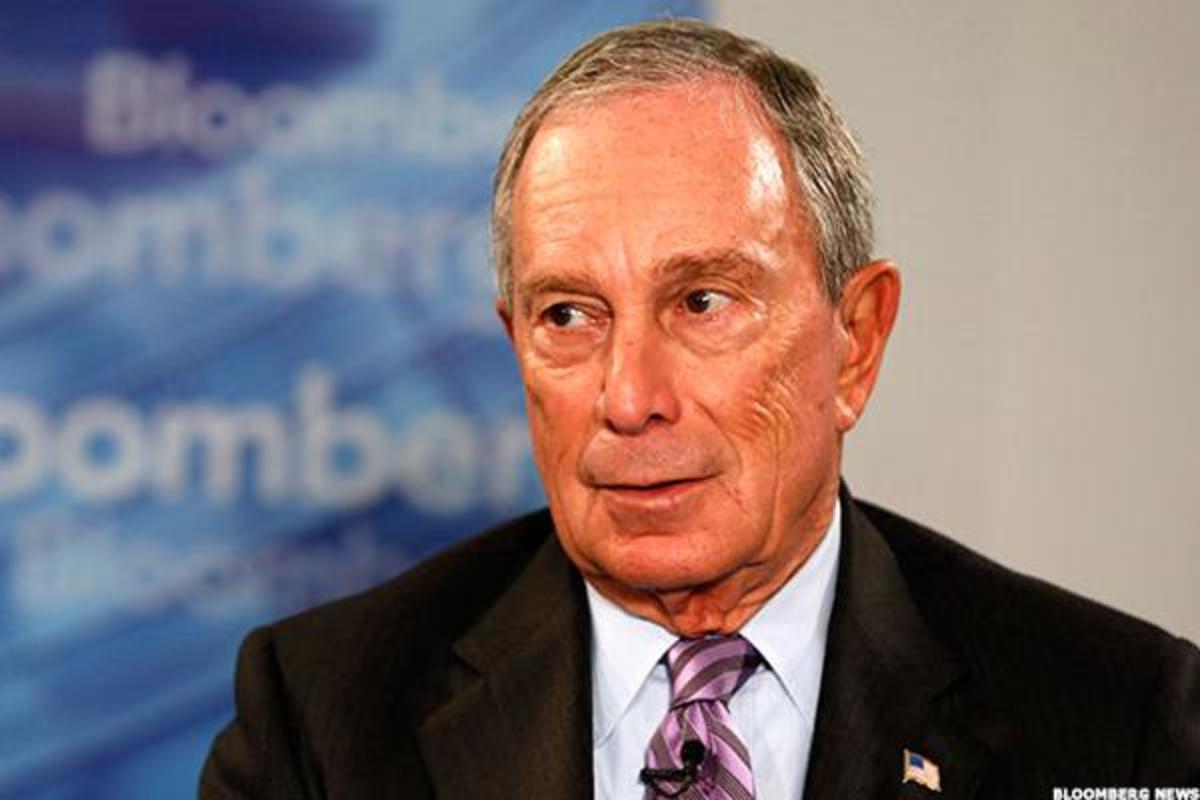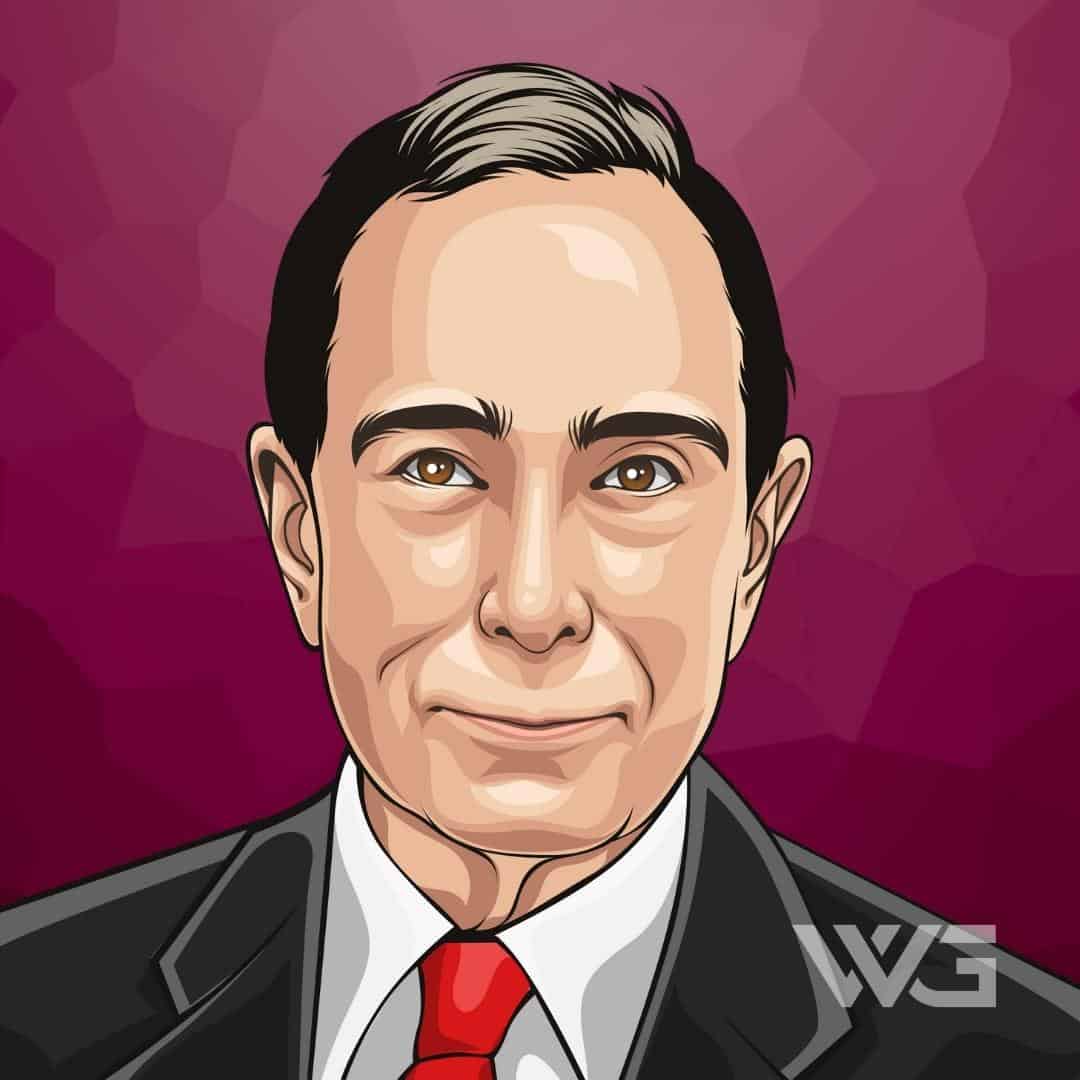Michael Bloomberg's Fortune: A Closer Look At His Net Worth
Have you ever wondered about the incredible financial standing of figures like Michael Bloomberg? It is a question many people ask, wondering just how much wealth a person can gather in a lifetime. Understanding the financial journey of someone so prominent can offer some interesting insights into the world of business and philanthropy, too.
Michael Bloomberg, a name truly synonymous with financial data and media, has built an empire that certainly helps shape global markets. His story is one of innovation, sharp business sense, and a deep commitment to various causes. His financial status, as you might imagine, is something that often grabs attention.
This article will take a closer look at the net worth of Michael Bloomberg, exploring the sources of his vast fortune, how it has changed over time, and what he does with such significant resources. We will, you know, try to paint a clear picture of this influential person's financial landscape, basically.
Table of Contents
- Michael Bloomberg: A Brief Life Story
- The Roots of His Riches: How Bloomberg Built His Fortune
- Watching the Numbers Move: How His Wealth Changes
- Giving Back: Michael Bloomberg's Philanthropic Efforts
- Common Questions About Michael Bloomberg's Wealth
Michael Bloomberg: A Brief Life Story
Michael Rubens Bloomberg, born in Boston, Massachusetts, has had a truly remarkable life path. He started his career on Wall Street, gaining experience that would later prove invaluable. After a pivotal moment, he decided to start his own venture, which certainly changed his life's direction, you know.
His early days were, so, marked by hard work and a keen eye for opportunity. He attended Johns Hopkins University, earning a degree in electrical engineering. Later, he went on to Harvard Business School, where he received his Master of Business Administration. These educational steps were, in a way, just the beginning of his journey into the financial world.
After finishing his studies, Bloomberg began his professional life at Salomon Brothers, a major investment bank at the time. He spent a number of years there, rising through the ranks. He worked in various roles, including heading up the equity trading and sales departments, which gave him a deep understanding of market operations, apparently.
In 1981, a big shift happened. Bloomberg was let go from Salomon Brothers, receiving a significant severance package. This moment, though perhaps difficult at the time, became the spark for something new. He used this capital to create his own company, which, as a matter of fact, would soon reshape the financial industry.
His idea was simple yet powerful: provide financial professionals with fast, reliable, and comprehensive market data. This vision was, you know, based on his firsthand experience of the inefficiencies in how information was shared. He saw a gap and moved to fill it, which was, quite frankly, a brilliant move.
He launched Innovative Market Systems, which later became Bloomberg L.P. The first product was the Bloomberg Terminal, a system designed to give traders and investors instant access to pricing data, news, and analytics. This tool was, virtually, unlike anything else available at the time, offering a real competitive edge.
His move from a traditional Wall Street career to building his own data empire shows a person with clear vision and the drive to make it happen. It was, in some respects, a bold step, but one that certainly paid off in a huge way. His background gave him the perfect foundation for this kind of business.
Personal Details and Biographical Data
| Full Name | Michael Rubens Bloomberg |
| Date of Birth | February 14, 1942 |
| Place of Birth | Boston, Massachusetts, USA |
| Education | Johns Hopkins University (B.S.), Harvard Business School (MBA) |
| Primary Source of Wealth | Bloomberg L.P. |
| Occupations | Businessman, Author, Philanthropist, Former Politician |
| Notable Public Service | 108th Mayor of New York City (2002-2013) |
The Roots of His Riches: How Bloomberg Built His Fortune
The core of Michael Bloomberg's vast wealth, as many people know, comes from Bloomberg L.P. This company, which he started in 1981, really changed how financial professionals get their information. It offered, and still offers, quick access to market data, news, and analysis through its famous Bloomberg Terminal, you know.
Back in the early 1980s, financial data was not always easy to get quickly or in one place. Traders often relied on paper reports, phone calls, or slower electronic feeds. Bloomberg saw a big need for a system that could provide, you know, real-time information to traders and investors, all at their fingertips. He built a system that was faster and more comprehensive than anything else out there at the time, which was, in fact, quite innovative.
The Bloomberg Terminal became, and still is, a standard tool in financial institutions all over the world. Banks, investment firms, and government agencies pay a significant annual fee for each terminal. These subscriptions generate billions of dollars in revenue each year, providing a steady and growing income stream for the company, so, it's a very reliable model.
Michael Bloomberg holds a very large ownership stake in the company, reportedly around 88%. This private ownership means he has kept a lot of the company's value for himself, rather than distributing it to public shareholders. This control over a highly profitable business is, obviously, a key part of his fortune, and it means he benefits directly from its success.
Beyond the terminal, Bloomberg L.P. expanded into news, television, radio, and magazines, making it a truly global media force. Bloomberg News provides financial and business reporting to a worldwide audience. Bloomberg Television and Radio offer 24-hour coverage. These ventures, you know, added to the company's reach and its overall value, further solidifying the base of Bloomberg's personal wealth. It's a pretty impressive story of growth, really.
The company's success also comes from its ability to adapt and expand its offerings. It provides data on nearly every financial instrument, from stocks and bonds to commodities and currencies. This wide range of data, combined with powerful analytical tools, makes the Terminal a truly indispensable resource for financial decision-makers. The depth of information is, in some respects, quite astonishing.
His wealth, you know, is a direct reflection of the success and wide acceptance of his company's products. Just like we see the evolution of powerful platforms mentioned in some technical descriptions, Bloomberg L.P. has grown into a highly complex and indispensable network for financial professionals. This growth has, therefore, directly fueled his personal net worth, pretty much.
The business model of Bloomberg L.P. is somewhat unique because of its subscription-based revenue and the high cost of switching for its users. Once a financial institution is set up with Bloomberg Terminals, it's often difficult to move to a different system due to the training involved and the specific features offered. This creates a very stable customer base, which is, actually, a big part of the company's long-term value.
This steady flow of income, combined with Bloomberg's majority ownership, means his personal fortune is closely tied to the ongoing strength and profitability of his creation. It is a testament to building a service that truly meets a critical market need, and then continuously improving it. His financial success, you know, really speaks for itself.
Watching the Numbers Move: How His Wealth Changes
The net worth of Michael Bloomberg, like that of many very wealthy people, does not just stay still. It moves up and down based on a few different things. The value of Bloomberg L.P., which is not publicly traded, is a big factor, and its value is estimated by how well the company is doing financially, you know, its profits and growth, basically.
Global economic conditions also play a big part. When financial markets are strong, and businesses are doing well, the demand for Bloomberg's services usually goes up. This can make the company, and therefore his stake in it, worth more. Conversely, economic downturns or periods of uncertainty can have the opposite effect, so, it's a bit of a moving target, certainly.
His personal investments outside of Bloomberg L.P. also add to or subtract from his total wealth. While the company is the main source, he certainly has other holdings that contribute. These might include real estate, other business ventures, or various financial instruments. These various assets are, you know, constantly being re-evaluated, which affects his overall financial picture.
For instance, if the demand for financial data services changes, or if new competitors emerge with different offerings, this could, in a way, impact the company's performance. Keeping an eye on these trends helps us understand why his net worth might be reported differently from one year to the next. It's a rather dynamic situation, really, just a little.
The estimates of his net worth often come from financial publications like Forbes and Bloomberg's own Billionaires Index. These publications use a mix of publicly available information, company reports (where available for private firms), and expert analysis to arrive at their figures. These numbers are, you know, educated guesses, but they provide a good general idea of his wealth.
His time as Mayor of New York City (2002-2013) also played a role in how his wealth was managed. While serving in public office, he stepped away from the daily operations of Bloomberg L.P. However, he maintained his ownership stake, meaning his fortune continued to grow based on the company's performance during those years. This separation of duties

Michael Bloomberg celebrity net worth - salary, house, car

What Is Michael Bloomberg's Net Worth? - TheStreet

Michael Bloomberg's Net Worth (2022) | Wealthy Gorilla